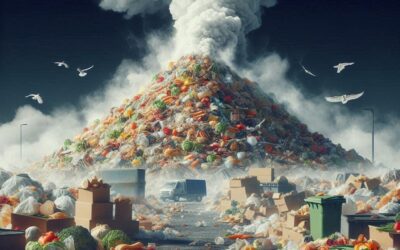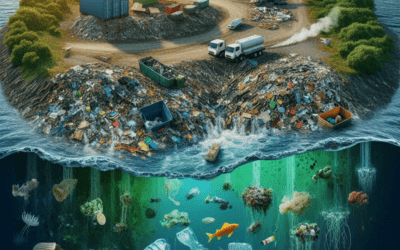For some readers, the Deposit Return Scheme will be familiar. You buy a drink in a bottle, and when you return it to the retailer, you get a small amount of money back in return. Old schemes concentrated on glass bottles, and those bottles were recycled for new use.
Today, according to GS1 Standards, a global standards community, UK consumers currently buy 14 million plastic bottles, nine million drinks cans and 1.5 billion glass bottles every year. While recycling rates are relatively good, thanks to kerbside recycling schemes, drinks containers still make up around 75% of the litter discarded on our streets.
Almost every drinks container is fully recyclable. So how do we encourage people to recycle rather than throw away?
Deposit Return Schemes (DRS) are in place in a wide range of countries around the world, and all four governments in the UK have committed to introducing a DRS policy. In fact, Scotland has already approved a scheme, which will begin in August 2023, with a target of achieving a 90% collection rate by the end of 2024. In a UK-wide survey, 84% of people agreed with the principle of a DRS and, with the climate emergency higher up the public agenda, there is a clear will to have schemes in place that help individuals to make a difference.
What is a DRS?
At its most simple, a DRS is a policy designed to help people recycle containers rather than throw them away. When you buy a drink, a small amount – 20p, for example – is added to the cost. When you recycle the bottle at an approved point, you get your 20p back. Effectively, it introduces a monetary incentive to reduce waste.
The result of a good DRS is that more material is recycled into new products. This creates an efficient and affordable circular economy and reduces the need to use raw materials.
DRS in practice
Of course, governments want to make these schemes as easy as possible for consumers to use. This means a great deal of planning and organisation for retailers, waste and recycling companies and standards bodies. In effect DRS is an Extended Producer Responsibility scheme – one where the business manufacturing the product is responsible for its recycling or reuse. And in order for that to work seamlessly, governments, businesses and standards bodies will need to work together to ensure that the recycling infrastructure capacity is reliable, cost-effective and efficient.
In the UK, governments need to work together to make sure that schemes work across borders. This will help consumers to recycle with ease – using the same process wherever they are. In fact, the ideal is that there are open, global standards for DRS schemes so that they become easier for countries to implement and easier for consumers to access. And of course, in the long term, the industry needs to look at how these schemes can be extended to other packaging and waste.
Does it work?
In late 2017, environmental consultancy firm, Eunomia, was commissioned by a group including the Campaign to Protect Rural England and Keep Britain Tidy to examine the financial impact that DRS schemes would have on local waste services in England. The findings showed that, overall, local authorities could benefit by saving between £60,000 and £500,000, with councils in England saving up to £35m in total. The company estimated that this would more than offset any loss of revenue from lower kerbside recycling.
In Germany, the country-wide DRS scheme has led to a 98% returns rate. Norway’s scheme has a similar rate of 97%. The deposit amount varies from country to country, and those countries with smaller populations tend to see success with these schemes. In order for more populous countries to achieve similar success, the infrastructure needs to be in place and awareness needs to be high – for many consumers, a DRS will require a complete change in behaviour.
The challenge for the waste and recycling industry
Introducing DRS brings a number of challenges to the waste and recycling industry. These are all manageable challenges if approached in the right way, and present a significant opportunity to contribute to a sustainable circular economy.
- Convenience to consumers – how should a DRS be implemented? Where are returns collected and how is money refunded?
- Audit and measurement – how do we collect the necessary data to allow transparent reporting on returns and recycling?
- Scheme expansion – how can we contribute to DRS being extended to other forms of packaging or waste?
- Cost-efficiency – how can waste and recycling companies ensure they can play a cost-efficient role in these schemes?
Our Waste & Recycling One software solution is designed to give companies complete visibility across operations. It supports the addition of new services, such as Deposit Return Schemes, helping to increase capacity and produce accurate tracking and reporting data. Helping waste and recycling businesses to support DRS and other Extended Producer Responsibility schemes, WR1 puts your business in a competitive position and readies your operations for growth. That’s what makes WR1 the world’s most advanced waste management software.






